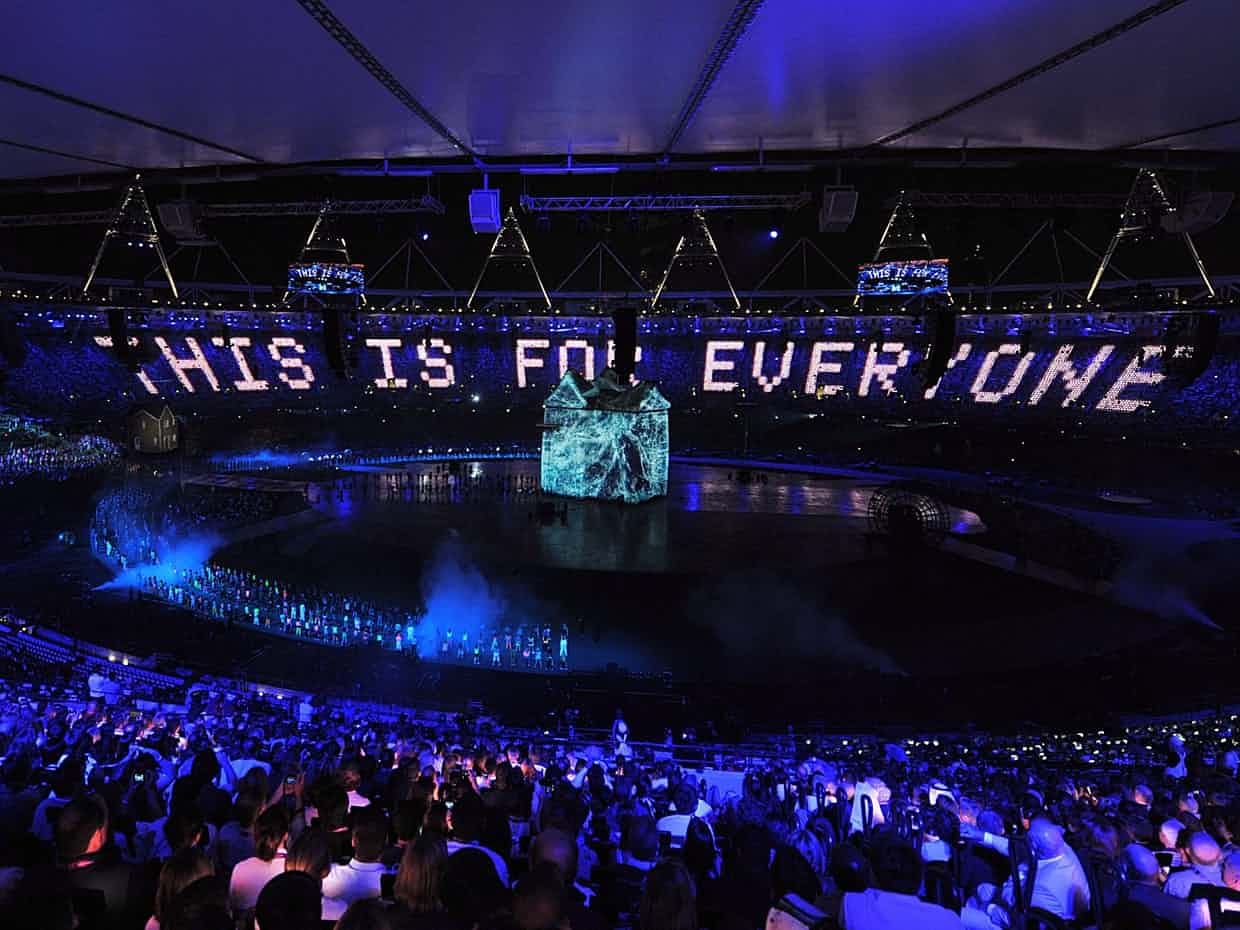At accessibility talks, I love to show a photo of Sir Tim Berners-Lee and the words he made appear on enormous screens during the 2012 Olympics opening ceremony in London: ‘This is for everyone’.
 Copyright: Martin Rickett/PA Wire, from The Guardian
Copyright: Martin Rickett/PA Wire, from The Guardian
With ‘this’, he meant the web, I assume. I like to ponder what the other bit means, ‘for everyone’. It’s probably a number of different things:
- Everyone can have a website. As in, you can register a domain, get hosting and put your site on. All at low cost and sometimes free. You do not need permission and are free to put whatever content on: your corporate mission statement or your love for the Vengaboys. Anything.
- Everyone can go to websites, there’s no entry fee or barrier to the web —although there is to some sites and in some countries— the web is open to access by default.
- Everyone can access the web, it is built to work for lots of different users, including those with visual, auditory or motor impairments, those with slow connections, those with new and those with old machines.
I think ‘this is for everyone’ refers for a large part to the universal accessibility of the platform. It is what makes the web awesome.
A different ‘for everyone’#heading-1
During a meetup that took place at Uber Amsterdam’s offices this week, I learned about that company’s mission statement. Before I continue, it is very kind of them to host meetups, they are a great way for the web community to meet each other. I admire the hospitality that makes this possible.
Anyway, the statement:
Uber’s mission is to bring transportation — for everyone, everywhere.
I’m sorry, but it struck the wrong chord with me. Their everyone (and indeed their everywhere) means something else. Admittedly, this may come across as extreme cynicism, but let’s try and think about what it means for them. What Uber mean by making transport available to everyone, is that they want everyone’s transport transactions to run through their systems. So that they can get their financial cut.
This is, of course, a perfectly fine strategy and it is how economies work. It isn’t inherently wrong for companies to try and increase market share and profit, but it is definitely a different ‘for everyone’. It’s the same language with a different meaning. As the web-style ‘for everyone’ wouldn’t break sensible laws that protect vulnerable people, it wouldn’t monetise people in distress, it would not order fake rides to beat competitors, it would not deny users with guide dogs and it would not use its data to spy on ex-girlfriends, track one night stands and… well, the list goes on.
This is for themselves, not for everyone. Uber wouldn’t do those things if its for everyone was really about people and not about profits. They make Uber’s ‘for everyone’ sound hollow. And I don’t like that, because the web’s ‘for everyone’ is not hollow, it is built into how the platform technically works, in web standards, in all of that.
Conclusion#heading-2
It appears ‘for everyone’ can have different meanings and I think it is important to see the difference between them, so that we are not fooled by for-profit companies that present themselves as charities. The web itself is a place where people are put first, and a place where power is not exercised on people, it is given to people.
Surely, it is great that so many companies are now using that platform for commercial purposes. Arguably that has helped with the platform’s popularity. It’s been pretty good for many of the world’ s economies too. But I can’t help but think about what the web could look like if we would make more things that really solve problems for everyone… let’s ask this: ‘what is the problem and who are we solving it for?’
Comments, likes & shares
No webmentions about this post yet! (Or I've broken my implementation)